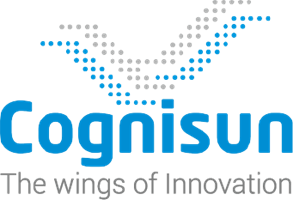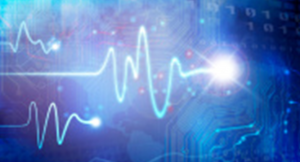The growing use of technology in healthcare has given rise to many benefits and also challenges in patient care. Consumer heath technology, such as wearable devices that provide personal data, has empowered patients; and the digitisation of health systems, with electronic health records and patient systems, should in theory help health authorities to deliver
improved patient services.


A recent white paperreleased by the National Quality Forum in the USA says that more than data availability, a larger constraint in helping improve the effectiveness of technology in healthcare is the ability to use and apply data toward improvement, such as integrating data with improvement on the front lines. It adds that raw data alone cannot lead to systematic improvement’it has to be turned into meaningful information, institutional leadership and culture have to support improvement efforts, and clinicians and healthcare staff need the skills to analyze and apply data.
The paper outlines strategies to help make health data and analytics more meaningful, usable, and available in real time for providers and consumers. It distills the recommendations of public and private sector leaders who convened to craft recommendations to address one of the biggest challenges for the healthcare industry: how to harness the value of big data.
It identifies actions that all stakeholders could take to make data more available and usable, including focusing on common metrics, ensuring that the healthcare workforce has the necessary tools to apply health data for improvement, and establishing standards for common data elements that can be collected, exchanged, and reported.
The white paper says that data to measure progress is fundamental to improving care provided to patients and their outcomes, but the healthcare industry has yet to fully capture the value of big data to engineer large-scale change. The challenges that reduce the effectiveness of data are:

- Interoperability and linking disparate data sources, given data at the community level, individual patient level, and at different levels of the healthcare system
- Leveraging data for internal improvement in broader benchmarking, and leveraging high-level performance indicator data for process improvement
- Providing feedback in a timely fashion
- Trust in the data (both from patients and providers)
- Ability to gather data directly from patients (patient surveys and patient-generated data)
- Ensuring data are meaningful and clinically relevant
The importance of patient generated data
People play an important role in improvement’whether as patients or consumers in the health system or as people in the community. People provide valuable perspectives on their healthcare experience, their function, and how healthcare addressed their concerns or goals. There is untapped potential in learning directly from people: today, there are few opportunities to collect patient-reported information.
apid changes are underway as new technologies are being piloted that are easy to use, allow people to quickly provide feedback, and are timely compared to their healthcare encounter. Some of these are entirely within the health system, while others are not, such as social media. These technologies need to continue to evolve, and further work is required to develop valid and reliable patient-reported outcome measures.
There are opportunities to learn from everyday data that people generate’ the so-called “small data” from digital interactions in daily life or from apps that work in the background of smartphones. These technological tools could help people with Parkinson”s disease or multiple sclerosis track their fine motor control through how they type on a smart phone, or help people with rheumatoid arthritis let their provider know their current functioning.
While this type of data is not widely available now, policymakers should be thinking ahead to a more organic but also more complex data ecosystem, such as the internet of things (IoT). An ongoing challenge will be analyzing the raw data to generate accurate information and alerts that consumers and clinicians can act upon.
The challenge for the healthcare industry is to harness the potential of technology and data to provide better, personalized and improved services to patients, hospitals, care homes, distributors and retailers. Of course there is market pressure to explore and implement new technologies to provide superb quality products and services, but at reduced cost! What is needed is healthcare-specific knowledge and expertiseon data storage, data security, confidentiality, and interoperability, with solutions that facilitate organizations to modernize their healthcare processes and standards to improve efficiency and reduce costs.
In the UK, this is one of the big debates at the ‘Healthcare efficiency through technology expo taking place later this month (30th September 2015). It looks at
- How healthcare providers can boost interoperability between consumer health technology and NHS systems, making the most of apps, wearable technology and patient held records by supporting integration
- Ensuring standards are simple and easy to implement
- Assessing technology in the health sector, maximizing its effectiveness to understand if its cost effective and evaluate whether it improves patient care
- Using data to reveal health inequalities in areas ranging from diabetes, hypertension and liver disease.
By utilizing appropriate solutions capable of addressing these challenges, the real power of technology and data can truly be effectively harnessed, and deliver real benefits to patients and consumers.
Highly motivated and passionate expert with more than two decades of sound experience in delivering software solutions for several verticals across various countries like US, UK, Australia, Canada, UAE, South Africa, and India.




